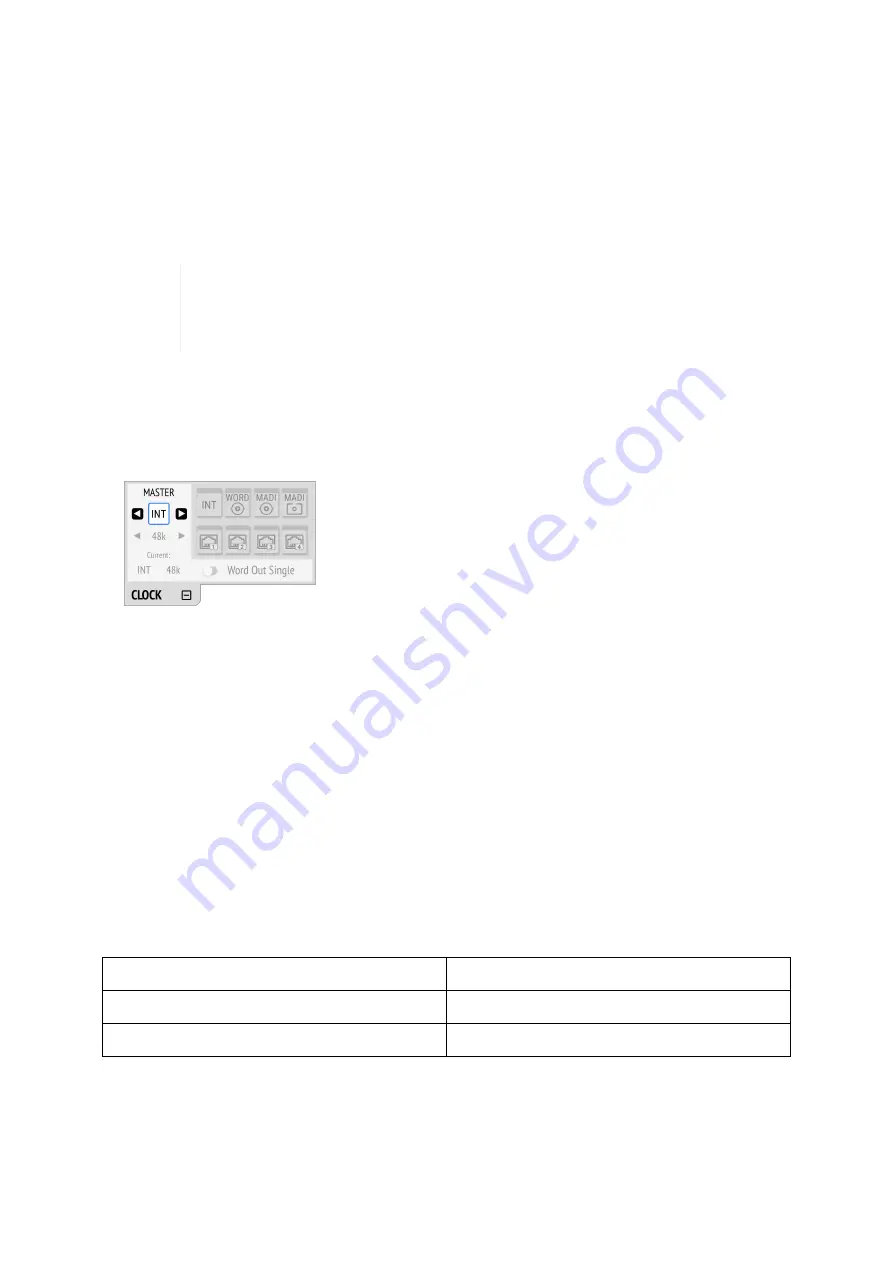
streams) can be chosen as clock reference. This activates
SteadyClock™ FS
, a technology that extracts
a low jitter clock signal from the incoming signal.
Intelligent Clock Control (ICC)
automatically changes the clock source when the chosen master clock
fails. Using the feedback of SyncCheck™, the M-32 DA Pro will change to another source signal that is in
sync, maintaining the slave mode and current sample rate. If no other source is available, the device will
fall back to its internal clock until the chosen master has recovered. Due to the excellent performance
of RME’s clock technology, disconnection and re-connection of a master clock is likely to be performed
without losing a sample in the outgoing audio signal.
ICC switches the clock source between word clock, MADI optical, MADI coaxial, and
internal, seamlessly, when the MADI optical, coaxial or word clock inputs fail and the
other port is locked - or to internal. ICC will not fall back to an AVB sync source and also
will not affect a chosen AVB master clock.
11.2.1. Selecting a Master Clock
To configure the clock master on the device:
1. Enter the
CLOCK
section. The cursor highlights the currently selected clock.
2. Push the encoder. Two blue arrows are shown to indicate that the encoder can now be used to
change the current setting.
3. Rotate the encoder until the preferred clock source is shown.
4. Push the encoder again to activate the setting.
To configure the clock master on the web remote:
1. Locate the
CLOCK
section.
2. Use the
Master:
dropdown menu to choose a clock source. The new clock source is applied
immediately.
11.3. Sample Rates Overview
The M-32 DA Pro supports the following sample rates:
Supported sample rates
Single speed
32 kHz, 44.1 kHz, 48 kHz
Double speed
88.2 kHz, 96 kHz
Quad speed
176.4 kHz, 192 kHz
If the device is clock master, these rates always correspond to the actual sample rate used.
RME M-32 DA Pro User’s Guide
11.3. Sample Rates Overview |
46











































